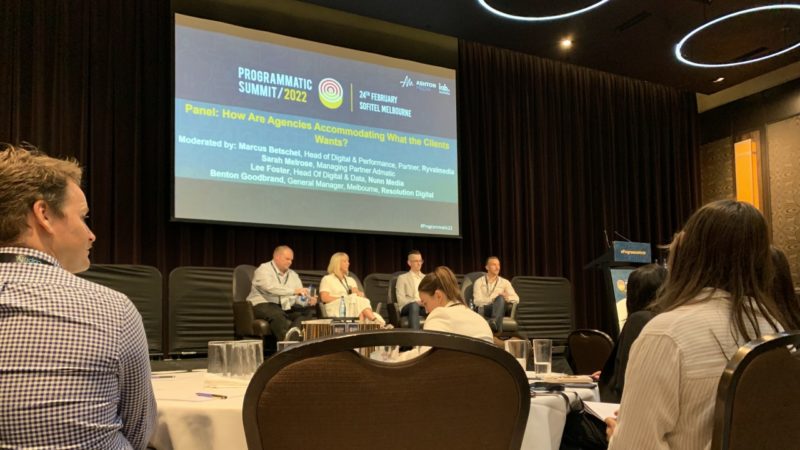Paying for programmatic: ‘clients need to pay for outcomes, not time’
In a session at yesterday’s Programmatic Summit in Melbourne, hosted by Ashton Media and IAB Australia, a panel discussed the work agencies do for clients, and how programmatic work is remunerated.
The session, entitled “How are agencies accommodating what clients want?”, moderated by Ryvalmedia’s general manager, Marcus Betschel, also featured Sarah Melrose, managing partner at Admatic, Lee Foster, head of digital and data at Nunn Media and Benton Goodbrand, Resolution Digital’s Melbourne general manager.

L-R: Betschel, Melrose, Foster, and Goodbrand


No one complained about “time” when they took 30% off the top.
Session should have been called “ “How are agencies accommodating what agencies want?” based on the direction it went to.